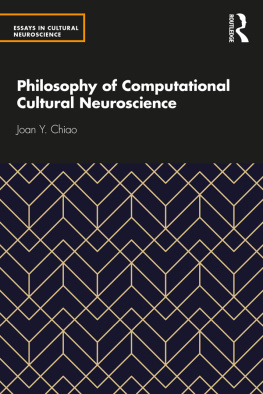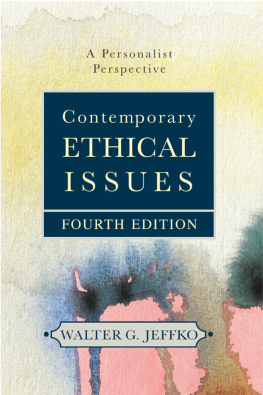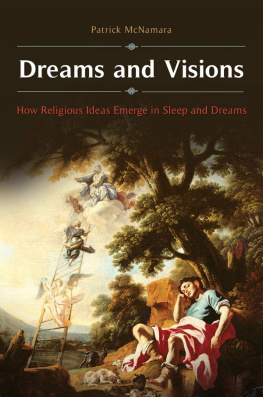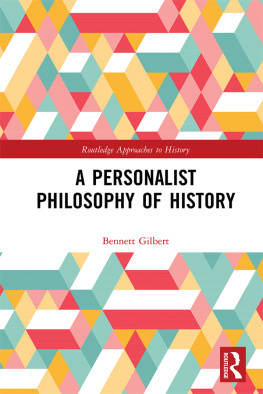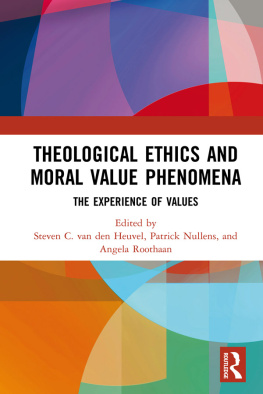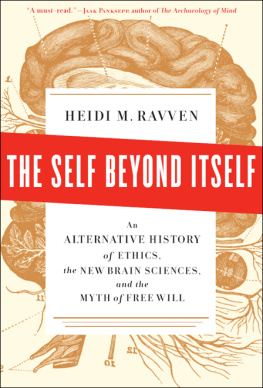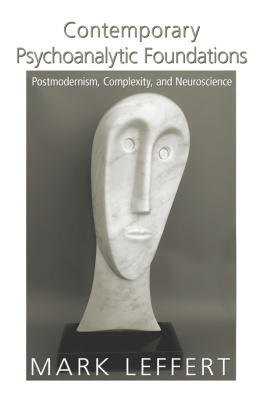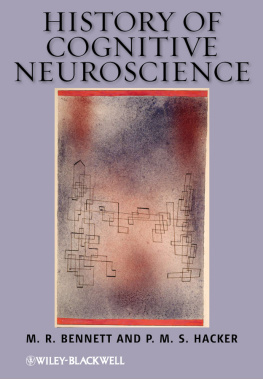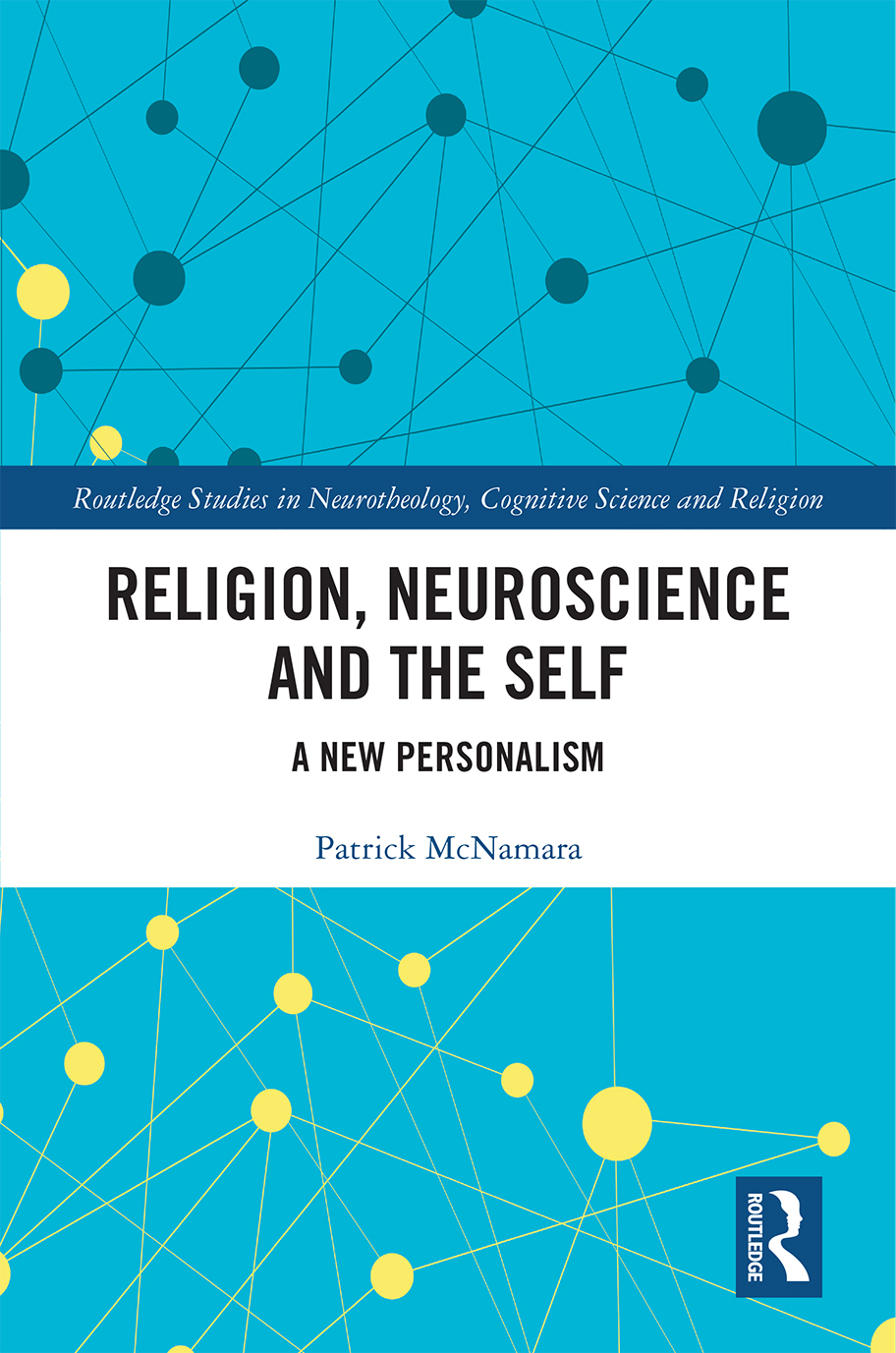Contents
Landmarks
Religion, Neuroscience and the Self
This book uses neuroscience discoveries concerning religious experiences, the Self and personhood to deepen, enhance and interrogate the theological and philosophical set of ideas known as Personalism. McNamara proposes a new eschatological form of personalism that is consistent with current neuroscience models of relevant brain functions concerning the self and personhood and that can meet the catastrophic challenges of the 21st century.
Eschatological Personalism, rooted in the philosophical tradition of Boston Personalism, takes as its starting point the personalist claim that the significance of a self and personality is not fully revealed until it has reached its endpoint, but theologically that end point can only occur within the eschatological realm. That realm is explored in the book along with implications for personalist theory and ethics. Topics covered include the agent intellect, dreams and the imagination, future-orientation and eschatology, phenomenology of Time, social ethics, Love, the challenge of AI, privacy and solitude, and the individual ethic of autarchy.
This book is an innovative combination of the neuroscientific and theological insights provided by a Personalist viewpoint. As such, it will be of great interest to scholars of Cognitive Science, Theology, Religious Studies and the philosophy of the mind.
Patrick McNamara is Professor in the Department of Psychology at Northcentral University and Associate Professor of Neurology at the Boston University School of Medicine, USA. He has published multiple articles and books on the interaction of religion, the brain, personhood and the self. He was also a co-founder of the Institute for the Bio-Cultural Study of Religion as well as the journal Religion, Brain and Behavior.
Routledge Studies in Neurotheology, Cognitive Science and Religion
Series editor: Andrew Newberg
Emergence of Religion in Human Evolution
Margaret Boone Rappaport and Christopher J. Corbally
Religion, Neuroscience and the Self
A New Personalism
Patrick McNamara
For more information and a full list of titles in the series, please visit: https://www.routledge.com/religion/series/RSNCSR
First published 2020
by Routledge
2 Park Square, Milton Park, Abingdon, Oxon OX14 4RN
and by Routledge
52 Vanderbilt Avenue, New York, NY 10017
Routledge is an imprint of the Taylor & Francis Group, an informa business
2020 Patrick McNamara
The right of Patrick McNamara to be identified as author of this work has been asserted by him in accordance with sections 77 and 78 of the Copyright, Designs and Patents Act 1988.
All rights reserved. No part of this book may be reprinted or reproduced or utilised in any form or by any electronic, mechanical, or other means, now known or hereafter invented, including photocopying and recording, or in any information storage or retrieval system, without permission in writing from the publishers.
Trademark notice: Product or corporate names may be trademarks or registered trademarks, and are used only for identification and explanation without intent to infringe.
British Library Cataloguing-in-Publication Data
A catalogue record for this book is available from the British Library
Library of Congress Cataloging-in-Publication Data
A catalog record has been requested for this book
ISBN: 978-0-367-02896-1 (hbk)
ISBN: 978-0-429-00107-9 (ebk)
Typeset in Sabon
by codeMantra
To Ina McNamara on her coming journey through the 21st century
In this work, I build upon some of the ideas presented in my 2009 book on the neuroscience of religion and the self but take them considerably further to engage fundamental scientific, theologic, and philosophical issues concerning the nature of the personal. I argue that at the heart of the personal experience is what the Aristotelian tradition called the agent intellect or roughly the power of the mind to abstract universals from intelligible forms; to creatively bring possible ideas and worlds into existence; and to discern the uniqueness or haecceity of any given existent, including ones self and other persons. It also creates the sense of an intentional unity in consciousness, such that my first-person perspectival experience is experienced as creative, free, inviolate, and my own. I argue that this sense of the personal is a major biocultural achievement of the modern age, but it is under severe threat. I then argue that we need a new form of personalism to protect the gains made in personal consciousness. I draw on theological resources to sketch out the key contours of this new personalism and call it eschatological personalism. Only an eschatological personalism has any chance of rising to the 21st-century challenges of totalitarian surveillance regimes (of both the left and the right), super-intelligent. Artificial Intelligent or AI machines, autonomous weapons of mass destruction, global ecological collapse, mass population transfers, and late modern globalized capitalism.
Eschatological personalism is an attempt to combine religious and scientific perspectives in a way that posits the sense of a subjective temporality that is oriented toward the perceived coming Kingdom of God or the End things as central to personality. This new perspective also implies a clash at the center of personality between two different experiential temporalities, the current age and the eschaton or coming age. The agent intellect uniquely possesses the capacity to bring into existence a notion of the coming age which is perceived to be characterized by ongoing revelation of the personal. For Christians, this would occur in the form of the person of Jesus Christ. For people of other faiths, it may take the form of a relation to a personal deity. We will see that some personalist philosophers have even spoke of an I-thou kind of relationship with Nature itself. That idea, that one strand of revelation will be the gradual unveiling of the meaning and nature of the personal, is one reason why a personalist philosophy will be so key to the eschatological project itself. My argument will be that eschatology needs personalism if it is to more adequately experience receiving the revelation that, for Christians, is the person of Jesus Christ. For people of other traditions it may be experienced in the form of whatever is considered ultimate such as an encounter with the deity or an awakening, Nirvana, the final judgement, entry into paradise, and so forth. I realize that these Christian-based theological claims sound extravagant to conventionally scientific ears, but I hope to provide some sober, substantive reasons for them in this book. The basic claim of the classical personalist philosophical and theological worldview is that the person is the key to all of reality in the sense that it conceptually illuminates all of reality, it sets up a hierarchy of values with individual persons as ultimate, and it gives us a guide to flourishing in that reality. In this book, I argue that this claim is consistent with the science and theology of persons, and is an absolutely necessary point of view if we are to survive and thrive in the globalized, technologized future awaiting us and our descendants. Although I strongly believe that all of the worlds religious traditions have something important to contribute to the personalist philosophical project, I focus on the Christian theological tradition as this is the only one I can claim any competence in.



